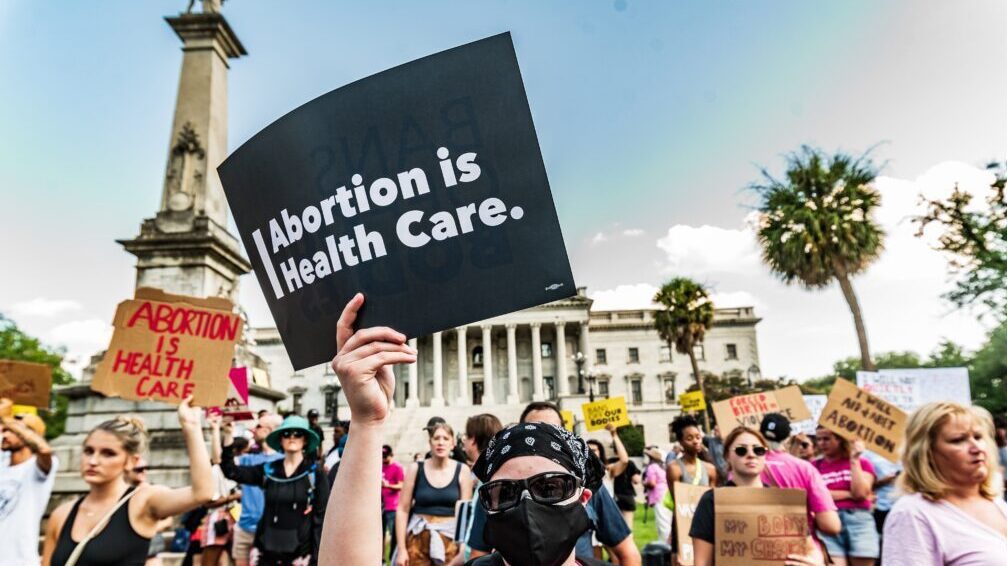The Center and Partners Sue South Carolina to Block New Abortion Ban
A six-week abortion ban—nearly identical to one thrown out by the state supreme court earlier this year—was signed into law this morning, causing chaos and confusion for patients and providers.

Case update: On August 23, 2023, the South Carolina Supreme Court upheld the state’s six-week abortion ban, allowing the law to take effect. Read more about the ruling here.
__________________________________________________
In a landmark ruling in January, the South Carolina Supreme Court struck down a law banning abortion after roughly six weeks of pregnancy as a violation of South Carolinians’ right to privacy under the state constitution. But state lawmakers passed another six-week ban just two days ago—nearly identical to the previous one. With the governor’s signature this morning, the ban took immediate effect.
Today, the Center for Reproductive Rights and its partners filed a lawsuit in the Court of Common Pleas for the Fifth Judicial Circuit on behalf of abortion providers to block the new ban, S.B. 474. The case argues that the ban is unconstitutional under the South Carolina constitution, violating its guarantees to privacy, equal protection and due process.
“This cruel ban was set to go into effect upon the governor’s signature, leaving South Carolinians and their providers in a state of uncertainty. Enacting laws with immediate effective dates is part of anti-abortion lawmakers’ efforts to create chaos and upend the lives of patients and providers overnight,” said Caroline Sacerdote, staff attorney at the Center.
The new ban has exceptions for: (1) medical emergencies; (2) cases where the pregnancy is the result of rape or incest and is reported to law enforcement, but only up until 12 weeks of pregnancy; and (3) fetal diagnoses “incompatible” with sustained life after birth.
In striking down the previous six-week ban, the South Carolina Supreme Court’s lead opinion stated that the ban was an “unreasonable restriction upon a woman’s right to privacy.” Since that ruling—which was in another case brought by the Center and its partners—the court’s only woman justice, who wrote the lead opinion, has retired from the court.
“South Carolina lawmakers have doubled down on restricting access to constitutionally protected health care, passing a six-week ban that is nearly identical to one that was recently struck down,” said Nancy Northup, president and CEO of the Center. “But the South Carolina Supreme Court was clear—banning abortion after approximately six weeks was unconstitutional six months ago, and it’s still unconstitutional now. South Carolinians’ rights are once again being violated, but we will continue to fight back.”
South Carolina Is a Key Access State
Because South Carolina is surrounded by states that banned or severely restricted abortion access after the U.S. Supreme Court eliminated the federal constitutional right to abortion, it has become an increasingly key access state for abortion care. In addition to providing care for in-state residents, providers are serving patients from states such as Alabama, Louisiana, Mississippi, Tennessee and Texas.
“Access to abortion care is increasingly precarious in the South, and it is crucial that we protect it in South Carolina,” said Sacerdote. “Just four months ago, the South Carolina Supreme Court did just that. We’re simply asking the court to follow that precedent here.”
Today’s case, Planned Parenthood South Atlantic v. South Carolina, was filed by the Center, Planned Parenthood Federation of America, and Burnette Shutt & McDaniel on behalf of Greenville Women’s Clinic, Planned Parenthood South Atlantic, and two South Carolina abortion providers.
